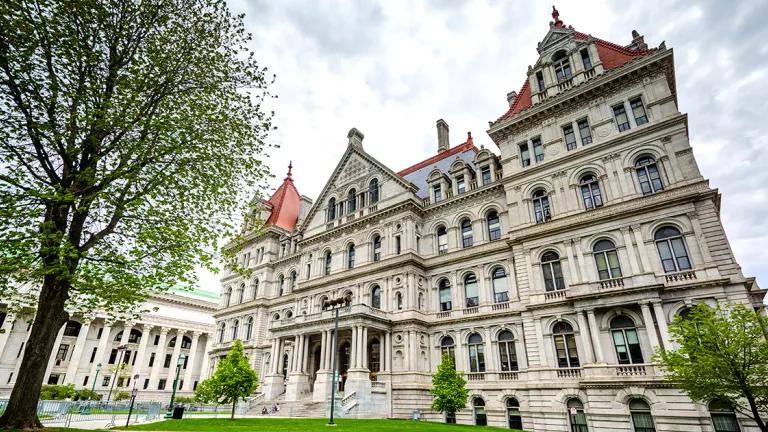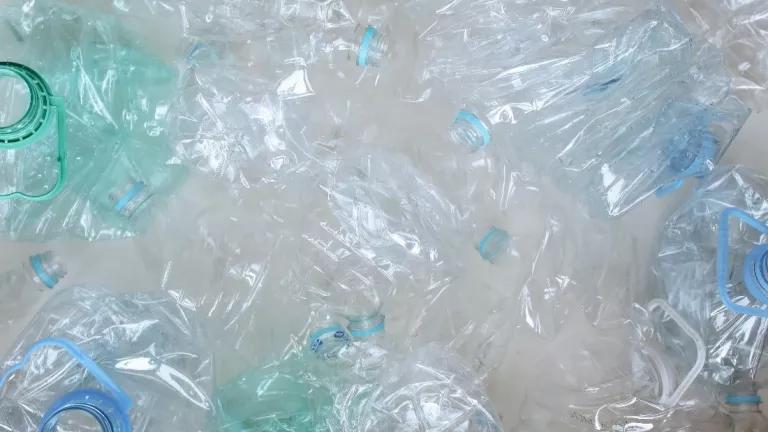Bipartisan HFC Phasedown Bill Introduced in U.S. Senate

Updated cosponsor list: March 5, 2020 -- list keeps growing!
Here’s something you don’t see every day.
Thirty-two Senators—16 from each party—have cosponsored a bill to phase down the powerful climate-changing chemicals called hydrofluorocarbons (HFCs) used in refrigeration, air conditioning, and other products, and replace them with climate-friendlier alternatives. A breakthrough in an area beset by division, the bipartisan bill has the backing of both industry and environmentalists, spanning from the U.S. Chamber of Commerce to the Natural Resources Defense Council.
Sens. John Kennedy (R-LA) and Tom Carper (D-DE) crafted S. 2754, the American Innovation and Manufacturing Act (AIM Act). The bill sets a schedule for cutting HFC production and import by 85 percent. The schedule can be accelerated as more alternatives come to market. Also included are measures to prevent HFC leakage and encourage recycling, reclamation, and destruction, and to limit specific uses where there are better alternatives.
Cosponsors of the Aim Act include Sens. Bill Cassidy (R-LA), Chris Coons (D-DE), Susan Collins (R-ME), Sheldon Whitehouse (D-RI), Roger Wicker (R-MS), Jeff Merkley (D-OR), Lindsey Graham (R-SC), Corey Booker (D-NJ), Todd Young (R-IN), Ed Markey (D-MA), John Boozman (R-AR), Richard Blumenthal (D-CT), Lamar Alexander (R-TN), Ben Cardin (D-MD), Chuck Grassley (R-IA), Chris Murphy (D-CT), Joni Ernst (R-IA), Angus King (I-ME), Lisa Murkowski (R-AK), and Martin Heinrich (D-NM). (We’ll update the list as it grows.) New cosponsor update, Mar.5, 2020: Sens. Jerry Moran (R-KS), Brian Schatz (D-HI), Tom Cotton (R-AR), Joe Manchin (D-WV), Roy Blunt (R-MO), Dianne Feinstein (D-CA), David Perdue (R-GA), Doug Jones (D-MS), Cindy Hyde-Smith (R-MS), Chris Van Hollen (D-MD), Mitt Romney (R-UT), Michael Bennet (D-CO).
Industry supporters include the Air Conditioning, Heating and Refrigeration Institute (AHRI) and the Alliance for Responsible Atmospheric Policy, representing chemical makers and product manufacturers that make and use HFCs now. These companies have invented and brought to market a host of better alternatives and the products to use them. In addition to the U.S. Chamber of Commerce, the bill also has the support of the National Association of Manufacturers, other trade groups, and companies. CERES has joined NRDC in support as well.
The AIM Act shows that industry, environmentalists and lawmakers can work together to phase down harmful HFCs and help the United States maintain its leadership in replacing them with climate-friendlier alternatives. With this breadth of support, the bill has real prospects to move in the Senate. A companion bill is being crafted in the House.
AHRI and the Alliance see the transition as a major opportunity for American manufacturers to lead the worldwide transition from HFCs to alternatives. The Alliance forecasts that the HFC phasedown will create 33,000 American jobs and will increase U.S. exports by $5 billion over the next decade. American companies have a competitive edge that will earn them a greater share of the world market and protect against U.S. market loss to importing competitors. At the same time, U.S. consumers are not expected to face higher costs for products using alternatives, especially considering energy efficiency’s impact on operating costs.
NRDC has worked for more than a decade to promote replacement of HFCs. Pound for pound, HFCs pack hundreds to thousands of times the climate-warming punch of carbon dioxide.
A growing number of states are adopting coordinated programs to get started on the HFC transition by ending their use in specific applications where there are safer alternatives. The bill provides federal leadership while preserving state authority to protect our health and environment.
The bill follows the same approach we used to eliminate CFCs and HCFCs, HFCs’ predecessors that gravely threatened Earth’s protective ozone layer and contributed to climate change. Now, as then, U.S. legislation will work alongside the Montreal Protocol, the world’s most successful environmental treaty. The Montreal Protocol was adopted under President Ronald Reagan and has enjoyed the backing of all presidents since then. The bill’s phase down schedule synchronizes with that of the 2016 Kigali Amendment to the Montreal Protocol, which took effect last year. Both industry and environmentalists support eventual U.S. ratification of Kigali.
Watch for the cosponsor list to grow. They are seeking action in the Senate Environment and Public Works Committee, and then by the full Senate. Watch also for developments on the House side.
With broadening and deepening support across the political spectrum, the AIM Act is a win-win we can get done in this Congress.




